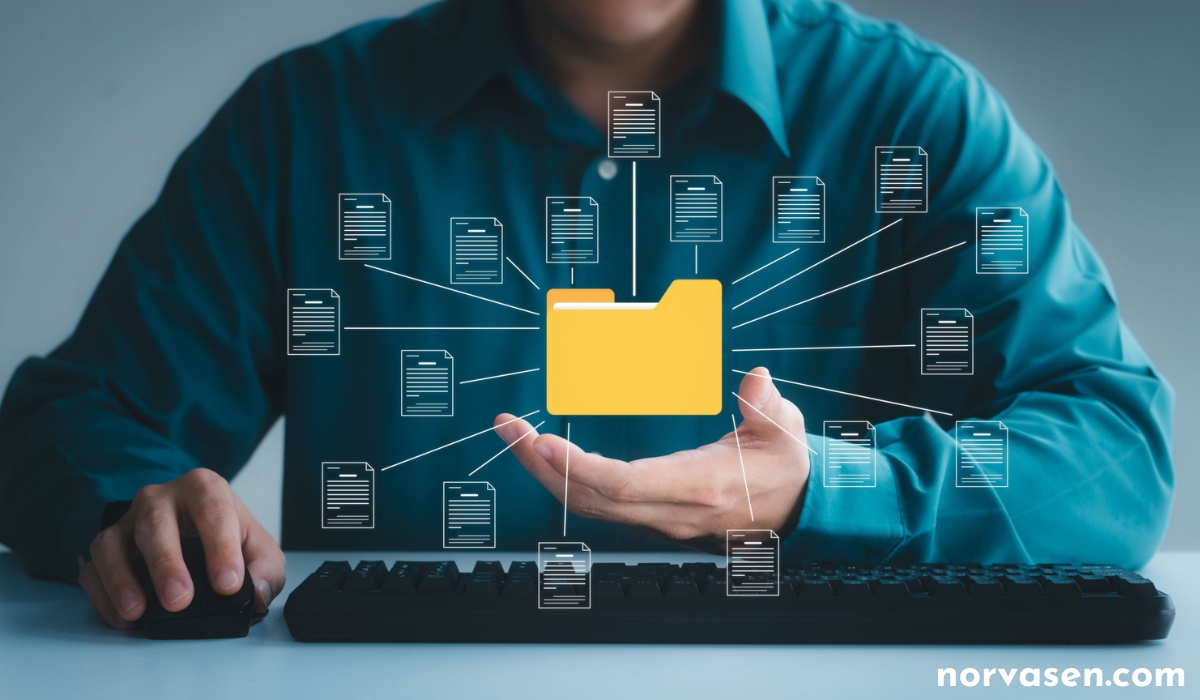How-To Guides
Data Management: Principles and Methods

Data management is a critical component of modern business operations, encompassing a set of principles and methods designed to ensure that data is collected, stored, processed, and utilized to maximize its value and minimize risks. In today’s data-driven world, organizations across all industries rely on data to make informed decisions, drive innovation, enhance customer experiences, and gain a competitive edge. However, managing data effectively is a complex and multifaceted challenge, requiring a comprehensive approach that addresses various aspects of data management, including data governance, quality, security, and integration.
Data management is about understanding the nature of your data, organizing it meaningfully, and applying the right tools and techniques to extract actionable insights. This involves defining clear data management policies and procedures, establishing robust data governance frameworks, and implementing advanced technologies. By doing so, organizations can ensure that their data is accurate, consistent, and reliable, enabling them to make better decisions and achieve their business objectives. Consult with Managed IT Services Red Bank experts for an effective data management plan for your business.
In this article, we will explore what does data management mean, data management methods and data management principles.
What is Data Management?
Data management refers to collecting, storing, organizing, and maintaining data in a structured manner to ensure its accuracy, accessibility, and security. This encompasses a range of activities, including data entry, validation, backup, and archiving. Effective data management is crucial for businesses and organizations to make informed decisions based on reliable information.
It helps optimize data usage, improve operational efficiency, comply with regulations, and protect sensitive information from unauthorized access or loss. Data management practices are essential in today’s digital age, where vast amounts of data are generated daily across various platforms and systems. Organizations prioritizing efficient data management strategies can gain a competitive edge by effectively harnessing their data assets’ power.
4 Principles of Data Management in Business
- Data Modeling
Data modeling is a fundamental aspect of data management principles. It involves creating a visual representation of how data is structured and organized within a database system. By developing a data model, organizations can better understand their data assets, relationships between different data elements, and the flow of information within their systems.
This process helps ensure data is accurately captured, stored, and utilized for various business operations. Effective data modeling is essential for maintaining data integrity, enabling efficient data retrieval, and supporting informed decision-making processes within an organization.
- Collect and Analyze Metadata
Collecting and analyzing metadata is a critical aspect of practical data management principles. Metadata provides essential information about the data, such as its source, format, and context, which is crucial for effectively understanding and utilizing the data. Organizations can ensure data quality, improve data governance, and enhance data security by collecting and analyzing metadata.
Additionally, metadata analysis can help identify patterns, trends, and relationships within the data, leading to valuable insights that inform decision-making processes. A structured approach to collecting and analyzing metadata is critical to establishing a solid foundation for efficient data management practices within an organization.
- Data Roles and Responsibilities
When it comes to data management, clearly defined roles and responsibilities are essential for ensuring the proper handling and security of data within an organization. Assigning specific roles to individuals or teams helps establish accountability and streamline data governance, quality assurance, and compliance processes.
Data stewards are typically responsible for overseeing the overall management of data assets, ensuring data integrity, and enforcing policies and procedures related to data usage. On the other hand, data custodians are tasked with the technical aspects of managing data, including storage, access control, and security measures. By clearly defining these roles and responsibilities within an organization, companies can promote a culture of data accountability and transparency while mitigating risks associated with improper data handling.
- Creating data lifecycle strategies
Creating data lifecycle strategies is a crucial aspect of data management principles. By implementing a robust strategy encompassing the entire data lifecycle, organizations can ensure that data is effectively utilized, secured, and compliant with regulations throughout its lifespan. A well-defined data lifecycle strategy typically includes data creation, storage, usage, sharing, archiving, and disposal.
By establishing clear guidelines and procedures for each stage, organizations can optimize their data management practices and derive maximum value from their data assets while minimizing risks associated with data misuse or breaches. Businesses must continuously review and update their data lifecycle strategies to adapt to evolving technology, regulatory requirements, and business needs.
4 Methods of Data Management For Business
- Data Collection
Data collection is a crucial step in data management methods. It involves gathering information from various sources, such as surveys, interviews, observations, and existing databases. The accuracy and relevance of the collected data are paramount for making informed decisions and drawing meaningful insights.
To ensure quality data collection, it is essential to establish clear objectives, use reliable data collection tools, maintain consistency in data-gathering processes, and adhere to ethical standards. By following systematic data collection procedures, organizations can enhance the reliability and validity of their data, leading to more accurate analysis and strategic decision making.
- Data Storage
Data storage is a critical component of effective data management methods. Proper data storage ensures that information is securely, easily accessible, and well-organized. Various data storage options are available, including cloud storage, on-premise servers, and external hard drives. Each option has advantages and considerations, such as cost, scalability, and security.
Assessing your specific needs and requirements is important when determining the most suitable data storage method for your organization. This will ensure that your data is stored efficiently and safely. Regular backups and data protection measures should also be implemented to safeguard against potential data loss or security breaches.
- Data Processing
Data processing is a critical component of data management methods. It involves converting raw data into meaningful information through various techniques and tools. The process typically includes data entry, validation, sorting, transformation, and summarization to generate insights that can be used for decision-making purposes.
With technological advancements, data processing has become more efficient and sophisticated, allowing organizations to handle large volumes of data with greater accuracy and speed. Implementing robust data processing methods is essential for ensuring the data’s quality and integrity for analysis and operational purposes.
- Data Integration
Data integration plays a crucial role in data management methods. It involves combining and unifying data from various sources to provide a comprehensive view of the information. By integrating data from disparate systems and sources, organizations can streamline operations, improve decision-making processes, and enhance efficiency.
Data integration helps ensure that data is accurate, consistent, and up-to-date across different platforms, enabling better analytics and reporting capabilities. Implementing effective data integration strategies is essential for organizations looking to maximize the value of their data assets and drive business success.
In Conclusion
Effective data management is essential for organizations seeking to maximize the value of their data assets. By adhering to fundamental principles such as data quality, data governance, and data security, in conjunction with strategies like data integration, data warehousing, and data visualization, businesses can leverage their data to drive informed decision-making, improve operational efficiency, and gain a competitive edge in today’s data-driven world. Embracing these principles and methods not only guarantees the accuracy, security, and accessibility of data but also lays the groundwork for innovation and growth. For more information on data management, visit the Managed IT Services Cleveland team for assistance.
How-To Guides
The Dangers of Allowing Minors to Operate ATVs

All-terrain vehicles (ATVs) offer an exhilarating outdoor experience, but they also come with significant risks, especially when operated by minors. Despite the appeal of ATVs to young thrill-seekers, the dangers associated with allowing minors to operate these vehicles cannot be overstated. This article delves into the risks, legal implications, and the role of parental responsibility in preventing ATV-related accidents involving minors.
Minors often lack the physical and cognitive maturity required to safely handle ATVs. Understanding these risks is crucial for parents and guardians to make informed decisions about ATV use. Consulting with a top rated injury law firm can provide valuable insights into the legal ramifications of ATV accidents involving minors.
The Physical and Cognitive Challenges
Operating an ATV requires significant physical strength and coordination, which many minors need to possess. The vehicles are often heavy and powerful, demanding precise control to navigate various terrains safely. Young riders may struggle with the physical demands, increasing the likelihood of losing control and causing accidents.
Cognitively, minors are still developing the ability to make quick, sound judgments, especially in high-pressure situations. This developmental stage can lead to poor decision-making on ATVs, such as underestimating speed or failing to anticipate obstacles. These cognitive limitations significantly elevate the risk of accidents and injuries.
Common Injuries Among Minor ATV Operators
ATV accidents can result in severe injuries, particularly among minors. Here are the common types of injuries and their implications:
- Fractures: Broken bones, especially in the arms, legs, and collarbone, are frequent outcomes of ATV accidents. These injuries often require long recovery periods and sometimes surgery.
- Head Trauma: Head injuries, including concussions and traumatic brain injuries, are prevalent, particularly when minors do not wear helmets. These injuries can have lasting cognitive and physical effects.
- Spinal Cord Injuries: ATV crashes can result in spinal cord damage, leading to partial or complete paralysis. Such injuries necessitate extensive medical treatment and rehabilitation.
- Internal Organ Damage: The impact of ATV accidents can cause serious internal injuries, such as liver lacerations, kidney damage, or internal bleeding. These injuries are life-threatening and require immediate medical attention.
- Lack of Protective Gear: The absence of helmets and padded clothing often exacerbates injuries. Minors without proper protection are more vulnerable to severe harm and long-term physical and psychological effects from accidents.
Legal Implications of Minor-Operated ATV Accidents
Allowing minors to operate ATVs can have serious legal consequences. In many jurisdictions, there are specific laws regulating the age at which individuals can legally operate ATVs. Violating these laws can result in fines, legal action, and liability for any injuries sustained or caused by the minor.
Parents and guardians may be held legally responsible for negligence if they allow their underage children to operate ATVs. In the event of an accident, victims can seek compensation for medical expenses, pain and suffering, and other damages. Consulting with a top-rated injury law firm can help families understand their legal rights and obligations.
Parental Responsibility and Supervision
Parental supervision is crucial in preventing ATV accidents involving minors. Parents should ensure that their children are adequately trained and equipped with the necessary safety gear before allowing them to operate an ATV. Enforcing strict rules about where and how the ATV can be used is also essential to minimize risks.
Parents should also consider enrolling their children in ATV safety courses, which teach essential skills and safety protocols. These courses can significantly reduce the likelihood of accidents by educating young riders on how to handle ATVs responsibly.
Safety Measures and Recommendations
To protect minors from the dangers of operating ATVs, several safety measures should be implemented. Firstly, always ensure that the minor wears appropriate safety gear, including a helmet, gloves, and protective clothing. These can mitigate the severity of injuries in case of an accident.
Secondly, ATV use should be limited to appropriate terrains and conditions. Avoid allowing minors to ride on steep, uneven, or overly challenging terrains. Lastly, the ATV must be regularly maintained and inspected to ensure it is in safe operating condition. Proper maintenance can prevent mechanical failures that might lead to accidents.
The Role of Legislation and Community Awareness
Legislation plays a vital role in regulating ATV use among minors. Stricter laws and enforcement can help reduce the incidence of accidents. Community awareness programs can also educate parents and children about the risks associated with ATVs and the importance of safety measures.
Communities can advocate for safer ATV practices through local initiatives, such as organizing safety workshops and promoting helmet use. By fostering a culture of safety and responsibility, communities can help protect minors from the inherent dangers of ATV operation.
Seeking Legal Support After an ATV Accident
In the unfortunate event of an ATV accident involving a minor, seeking legal support is crucial. A top-rated injury law firm can provide the necessary legal guidance and representation to navigate the complexities of personal injury claims. Legal professionals can help determine liability, gather evidence, and secure fair compensation for medical expenses, rehabilitation, and other damages.
Legal support can also provide families with the resources needed to cope with the aftermath of an accident, ensuring that their rights are protected and that they receive the necessary support for recovery.
Long-Term Consequences and Rehabilitation
The long-term consequences of ATV accidents involving minors can be severe and life-altering. Beyond the immediate physical injuries, many young riders face prolonged recovery periods, requiring extensive medical treatment and rehabilitation. This can include physical therapy to regain mobility, surgery to repair damaged bones or organs, and ongoing medical check-ups to monitor recovery progress. The physical and emotional toll on the injured child and their family can be overwhelming, often leading to significant lifestyle changes and adjustments.
Rehabilitation is a crucial part of the recovery process, aimed at helping the injured minor regain as much function and independence as possible. It may involve various therapies, including physical, occupational, and psychological support, to address the comprehensive needs of the injured child. The costs associated with long-term care and rehabilitation can be substantial, making it essential for families to seek adequate compensation through legal channels.
How-To Guides
How Pre-licensing Courses Can Prevent Any Tragic Accident on the Road

Driving is a critical life skill, but it also comes with significant responsibilities. Every year, thousands of lives are lost in traffic accidents, many of which could have been prevented with better driver education. Pre-licensing courses play a crucial role in preparing new drivers to be safe, responsible, and confident behind the wheel.
In this guide, we will explore how these courses can help prevent a tragic accident on the road.
The Benefits of Pre-Licensing Courses
While some people may believe that driving is an intuitive skill, the reality is that it requires a comprehensive understanding of various factors. Pre-licensing courses ensure that new drivers are well-prepared to handle different driving situations, thereby reducing the risk of accidents.
One of the primary benefits of pre-licensing courses is that they provide a thorough understanding of traffic laws. Knowing the rules of the road is essential for preventing accidents.
These courses teach drivers about speed limits, right-of-way rules, and the importance of following traffic signals. Here’s more information about a 5 hour course that helps drivers make informed decisions and avoid dangerous situations.
Steps to Take a Pre-Licensing Course
Follow these steps to complete a pre-licensing course successfully.
1. Research and Choose a Course
The first step in taking a pre-licensing course is to research available options. Look for courses that are accredited and have positive reviews from past students.
Consider factors such as the course curriculum, duration, and cost. Make sure the course meets the requirements for obtaining a driver’s license in your state or country.
2. Enroll in the Course
Once you’ve chosen a course, the next step is to enroll. This often involves filling out an application form and paying a fee. Some courses may be available online, while others require in-person attendance. Choose the format that best fits your learning style and schedule.
3. Attend Classes and Complete Assignments
Pay close attention to the material covered, as it will be essential for passing your driving test. Take notes and ask questions if you need clarification on any topics.
4. Take the Final Exam
Most pre-licensing courses conclude with a final exam. It tests your knowledge of traffic laws, defensive driving techniques, and other key topics. Passing this exam is usually a requirement for obtaining a certificate of completion, which you’ll need when applying for your driver’s license.
5. Get Your Certificate of Completion
Upon successfully completing the course and passing the final exam, you’ll receive a certificate of completion. This document is proof that you’ve fulfilled the educational requirements for obtaining a driver’s license. Keep it in a safe place, as you’ll need to present it when you go to apply for your license.
The Crucial Impact of Pre-Licensing Courses to Avoid a Tragic Accident
Pre-licensing courses are an invaluable resource for anyone looking to become a safe and responsible driver. By providing comprehensive knowledge of traffic laws and offering practical driving experience, these courses play a crucial role in preventing a tragic accident on the road.
If you’re preparing to get your driver’s license, consider enrolling in a pre-licensing course to ensure you’re fully equipped to handle the challenges of driving.
For similar topics, visit our blog!
How-To Guides
The Importance of Proper HVAC Recovery: Tips for Avoiding Costly Repairs

Have you ever wondered why your HVAC system suddenly stops working?
Proper HVAC recovery might be the answer. When your HVAC unit isn’t maintained well, it can lead to breakdowns and expensive repairs. By understanding HVAC recovery, you can keep your system running smoothly.
In this guide, we will share simple tips to help you avoid these costly problems. By taking care of your HVAC system, you can save money and enjoy a comfortable home all year round.
Regularly Change Air Filters
Changing air filters regularly is crucial for an energy-efficient HVAC system. Dirty filters block airflow, making your system work harder and use more energy. This extra strain can lead to breakdowns and costly repairs.
To avoid these issues, check your air filters every month. Replace them at least every three months, or more often if you have pets or allergies. Clean filters not only extend the life of your HVAC unit but also keep your indoor air quality high.
Schedule Annual Professional Maintenance
Annual professional maintenance is key to keeping your HVAC system in top shape. A trained technician can spot problems before they become big issues. They will check parts, clean coils, and make sure everything runs smoothly.
Investing in a yearly tune-up helps to avoid breakdowns and saves money on repairs. Plus, it extends the life of your system.
Using the best recovery machine ensures efficient and effective service. Remember, taking care of your HVAC system yearly keeps your home comfortable and energy bills low.
Keep Outdoor Units Clean and Clear
Good HVAC maintenance includes keeping outdoor units clean. Remove leaves, dirt, and debris from around the unit. These things can block airflow and make the system work harder.
Trim plants and bushes at least two feet away. This helps air move freely. Check the area every month and especially after storms.
Wash the unit with a garden hose if it gets dirty. Keeping outdoor units clean improves efficiency and can prevent costly repairs. Simple cleaning goes a long way in HVAC maintenance.
Use a Programmable Thermostat
Using a programmable thermostat can save energy and money. Set it to lower the temperature when no one is home and raise it before you return. This simple adjustment can reduce your energy bills without sacrificing comfort.
During the summer, set the thermostat higher when you’re away, and lower it in the winter. Make sure to read the manual and program it correctly. A programmable thermostat takes the guesswork out of adjusting temperatures and helps your HVAC system run efficiently throughout the year.
Seal and Insulate Ductwork
Sealing and insulating ductwork keeps your HVAC system efficient. Leaky ducts can let warm or cool air escape, making your system work harder and using more energy. Inspect your ducts for gaps and seal them with duct tape or mastic sealant.
Add insulation around ducts in unheated areas like attics or basements. This step helps keep the air temperature steady and saves money on energy bills. Properly sealed and insulated ducts ensure your home stays comfortable and your HVAC system runs smoothly all year.
Follow These Tips for Effective HVAC Recovery
HVAC recovery is crucial for maintaining a reliable and efficient system. By changing air filters, scheduling yearly maintenance, keeping outdoor units clean, using a programmable thermostat, and sealing ductwork, you can avoid costly repairs and keep your home comfortable.
Regular care and attention to your HVAC system ensure it runs smoothly and lasts longer. Follow these simple steps for effective HVAC recovery and enjoy year-round comfort.
Please take a look at our blog for more educational articles.
-

 Tech5 months ago
Tech5 months agoExploring the Features of Innocams: The Future of Security
-

 Home Improvement3 months ago
Home Improvement3 months agoEco-Friendly Round Rug Options for Sustainable Living in NZ
-

 How-To Guides2 months ago
How-To Guides2 months agoComprehensive Guide to Cockwarming: Enhancing Intimacy and Connection
-

 Fashion3 months ago
Fashion3 months agoBlack Magic: The Elegance and Sophistication of Ultimate Homecoming Dresses in Black
-

 Apps and Games3 months ago
Apps and Games3 months agoDiscover Tickzoo: The Ultimate Platform for Video Content Lovers and Creators
-

 Business5 months ago
Business5 months agoUnlock Potential: Explore Pikruos Services
-

 Blog3 weeks ago
Blog3 weeks agoPossiblyethereal: Exploring the Ethereal Unveiling Abstract Ideas
-

 Entertainment4 months ago
Entertainment4 months agoDiving into the Audio-Visual Experience with AV Tub: Innovating Our World of Media






















